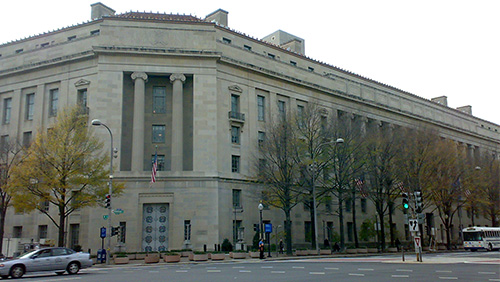The shenanigans of the Department of Justice (DOJ) over the Federal Wire Act of 1961 has wreaked havoc on the online gambling industry, creating uncertainty about what would, or wouldn’t be allowed under the department’s definition of the act. A brief reprieve was given last month when a judge sided with New Hampshire in its lawsuit against the DOJ, but that doesn’t mean the subject has died. Justice officials have asserted that they will begin enforcement of the no-online-gaming-of-any-kind ruling by next year, but Congressional lawmakers apparently are tired of the game-playing. A handful had introduced legislation to cut the DOJ’s budget in order to get the department to play nice, but that legislation has already been pulled just two days after being introduced.
 Earlier this year, the DOJ decided that the decades-old law was meant to cover any type of online gaming, not just sports gambling, as it had stated almost nine years ago. This caused a serious uproar and allegations of payoffs possibly having been made by casino executives to members of the DOJ. Lawsuits started flying and the DOJ said it would hold off on enforcement action – temporarily – due to the backlash. When a federal judge ruled against the DOJ, the department didn’t accept defeat; only stating that it would issue another moratorium against punishment until next year. Three lawmakers then stepped in to tell the DOJ to knock it off.
Earlier this year, the DOJ decided that the decades-old law was meant to cover any type of online gaming, not just sports gambling, as it had stated almost nine years ago. This caused a serious uproar and allegations of payoffs possibly having been made by casino executives to members of the DOJ. Lawsuits started flying and the DOJ said it would hold off on enforcement action – temporarily – due to the backlash. When a federal judge ruled against the DOJ, the department didn’t accept defeat; only stating that it would issue another moratorium against punishment until next year. Three lawmakers then stepped in to tell the DOJ to knock it off.
Representatives Hank Johnson and Sanford Bishop of Georgia and Representative Andy Barr of Kentucky added an amendment to a bill that would prevent the DOJ from being paid for any action it conducted in conjunction with its position on the Wire Act. The bill to which it was attached is an important one for the DOJ, as it what authorizes the federal government to pay the department.
The amendment read, “None of the funds made available by this Act may be used to enforce the Department of Justice Office of Legal Counsel memorandum entitled ‘Reconsidering Whether the Wire Act Applies to Non-Sports Gambling’ (issued on November 2, 2018).”
That amendment was pulled without an explanation. Perhaps it was never meant to be legitimately considered – it may have just been a way to get the DOJ’s attention. Perhaps it was determined to fall outside the scope of the powers held by Congress. Regardless of the reason for its demise, the amendment still should be seen for its value. Congress is aware of what the DOJ is doing and will ensure that it enforces the laws of the country – not break them as it is trying to do with its Wire Act decision.